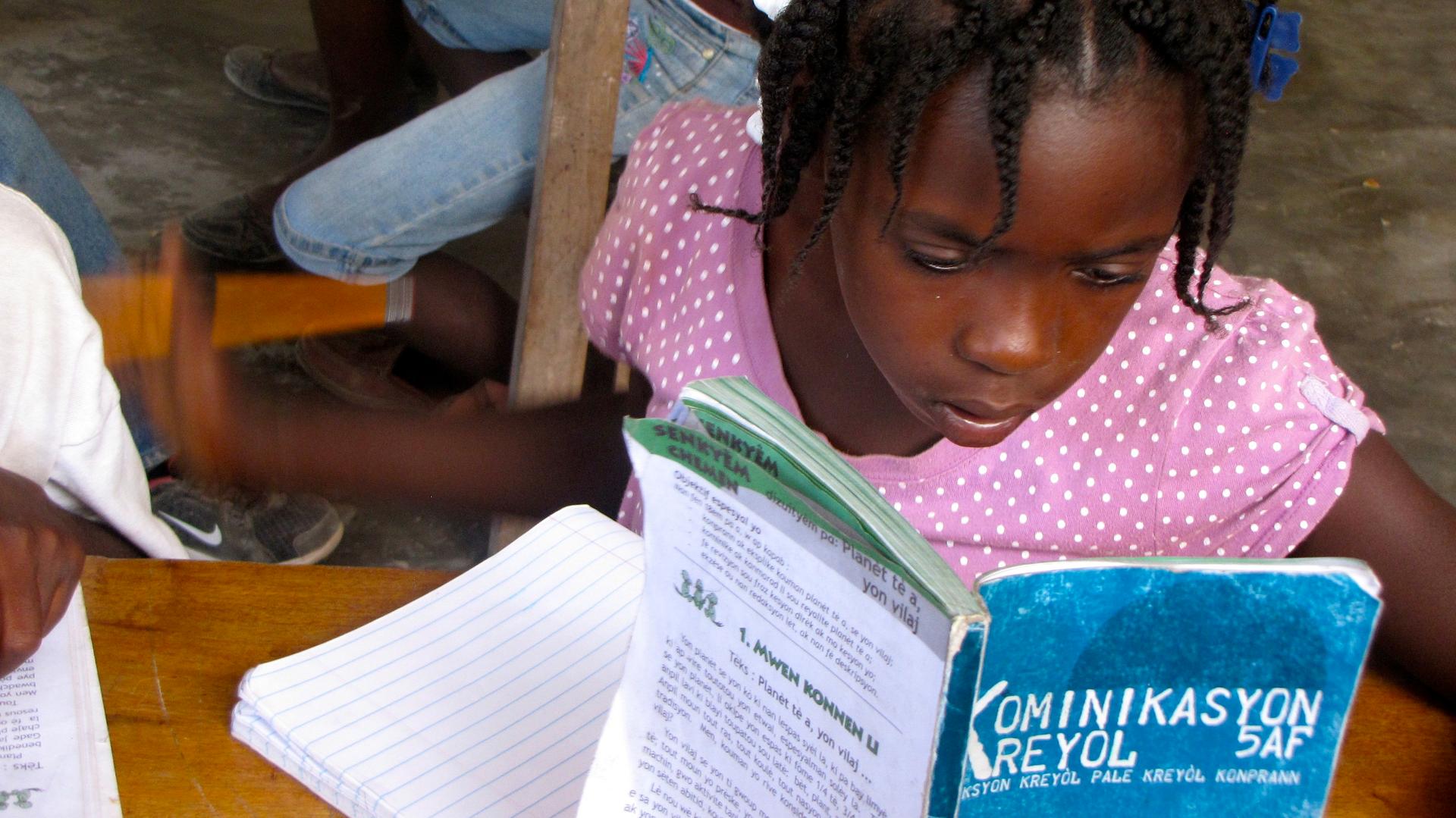French language
This village school in Haiti helped propel a national movement to teach kids in Creole
French has long been the language of education in Haiti, despite the fact that few Haitians actually speak it. But while their native tongue, Creole, was once disdained as merely broken French, there’s now a movement to make it the centerpiece of teaching on the island.
We want to hear your feedback so we can keep improving our website, theworld.org. Please fill out this quick survey and let us know your thoughts (your answers will be anonymous). Thanks for your time!
How Rokia Traoré Created a Beautiful Album Amid Constant News of Torture and Killings in Mali
Last year, a coup d’etat in Mali fed an Islamist uprising in the country’s north. Thousands of Malians were displaced: hundreds more tortured and killed. But it didn’t stop singer Rokia Traore from creating a new album that pushes people to seek beauty.
Haiti on brink of becoming latest member of African Union
If all goes as planned, Haiti, yes North America’s Haiti, will become the latest member of the African Union sometime in January. Haiti and Africa share a sense of history, and African countries stepped up in the wake of Haiti’s earthquake, which has led some to conclude the time is right to formalize their ties.
Haiti’s new environmental turn delights, dismays
Haiti’s got a new leader who is determined to make the country more environmentally friendly. Along the way, he’s trying to save one of the country’s national parks. But at the same time, he’s also forcing some long-time park “residents” away from the only home they know.
The music has died in northern Mali as Islamic extremists exert control
Northern Mali was taken over by militants and Islamic extremists and now they’re in the process of implementing a system of Sharia law in that part of the country. That’s meant an end to musical performances across the part of the country controlled by the extremists.
Haitian migrants wait in Peruvian border town for chance to enter Brazil
Thousands of Haitians left their country in the aftermath of the 2010 earthquake. While many fled to the United States, others made the arduous journey south to Brazil. But after letting in more than 4,000 Haitian migrants, Brazil has toughened its immigration policy. Meanwhile, hundreds more wait at its border for the chance to get in.
Subscribe to The World’s Latest Edition podcast for free using your favorite podcast player:


